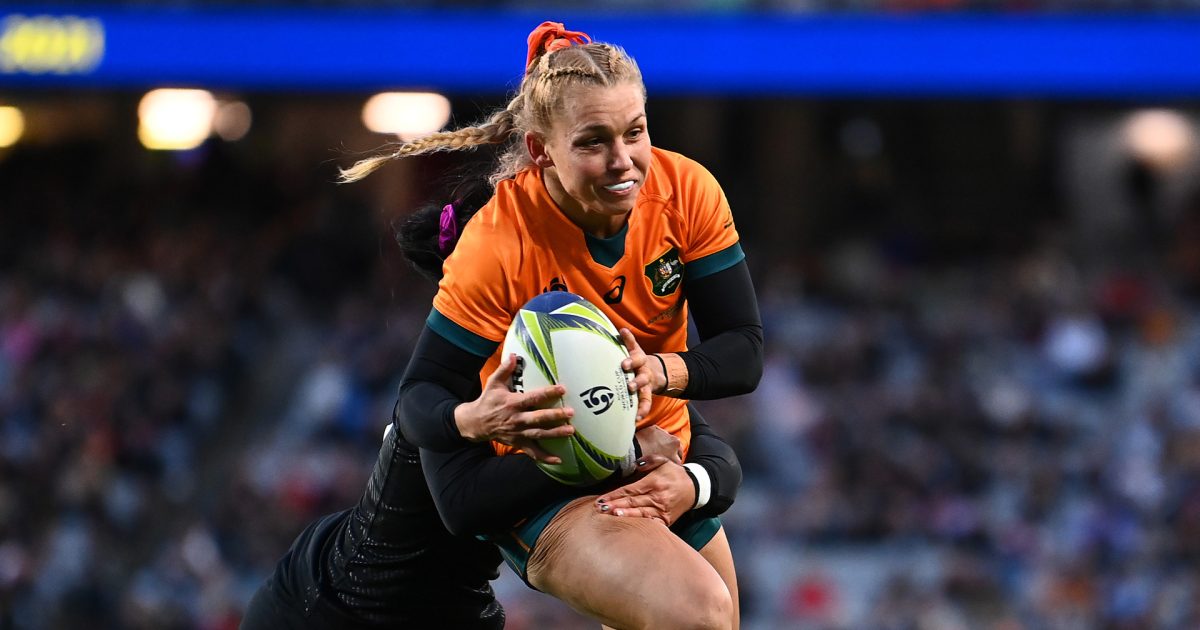New Wallaroos' player of the year didn't pick up the game until 18-years-old

Georgina Friedrichs never played rugby union as a child and hadn’t debuted for Australia a year ago.
Now the centre is the Wallaroos’ reigning player of the year, dreaming of how much better she and her team can be as professionalism grasps the women’s program.
The NSW Waratahs gun’s first steps in rugby were with Queensland and Australia’s rugby sevens program as an 18-year-old.
A hip injury and subsequent lay-off eventually steered her towards the 15-a-side game, in which national squad members will be placed on part-time contracts for the first time this year.
It’s a step towards the eventual goal of a fully professional program ahead of hosting the Women’s Rugby World Cup in 2029.
The Wallaroos made this year’s World Cup quarter-finals but remain a level below the world’s best without the financial support of their sevens equivalent, which boasts Olympic, World Series, World Cup and Commonwealth Games trophies.
“I grew up playing tough football. Playing rugby I never aspired to until I was in my later teens, and it’s created so many opportunities in life,” she told reporters after receiving her player-of-the-year honour on Tuesday.
“I was watching old footage the other day to see where I was, even just over 12 months ago.
“It’s exciting to see the growth in my game and where I’ll hopefully be in 12 months, or two years leading into the next World Cup.
“And you could see how much we grew as a team.”
Friedrichs thanked her family for “coming to any game, anywhere in the world” and, in a nod to their amateur status, her husband for cooking her dinner after late-night training sessions.
Wallaroos coach Jay Tregonning said she was one of the side’s best in every Test she’s played.
“From her debut Test against Fiji in May, through to the quarter-final against England at the Rugby World Cup,” he said.
“She has a calming presence within the leadership group, inspiring her teammates with her courage and work ethic.
“Her skills on the field and her humour have been an incredible addition to the Wallaroos squad.”
It comes as the Western Force named seven players in the Super W club’s scholarship-backed inaugural academy.
Players will be paid as they train in month-long blocks around club, work and family commitments.
“It is a huge accomplishment for the Western Force to have the foresight to put an academy program together and give it the backing it needs,” Force female high-performance manager Claudia Bell said.
“If we act where we want to be in three years – that is full-time, fully paid professional athletes – we act that way now.”











































































